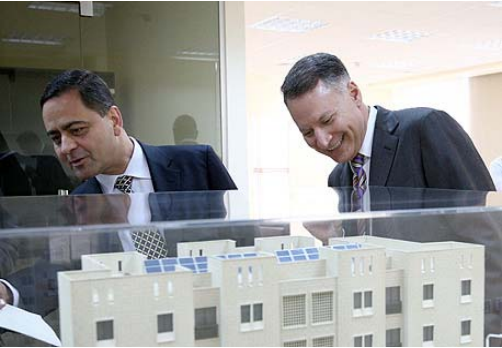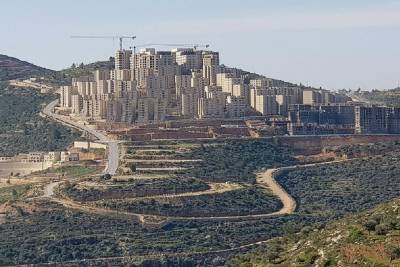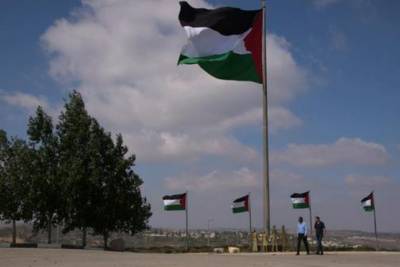Palestinian Economy: Rare Water resources
The Calcalist - Danny Rubenstein - After a long dispute, Israel finally agrees to connect Rawabi to water resource. Expanding the pipeline already sparked a new debate
Two weeks ago, an agreement was finally reached between the Israeli water authorities and the Palestinians to connect the new Palestinian city Rawabi, north of Ramallah, to the water network. The most difficult obstacle which prevented Rawabi’s almost thousand families to move in to their newly bought apartments was finally removed. The senior Palestinian officer who first announced the agreement added that in principle, he and Bayti Co, which is building Rawabi, headed by entrepreneur Bashar al-Masri hope to welcome the first tenants of Rawabi into their new residences, within three months.
According to plans, some 6,000 families will ultimately live in Rawabi, so with more future population coming in; a larger supply of water will be needed drastically. This would necessitate stretching an additional tube to pass through Area C which is under Israeli control, an act opposed by the settlers.
Connecting Rawabi to the water network was controversial among Israeli and Palestinian representatives to the Joint Water Committee, which did not meet in a long time because of disputes between the parties. About a month ago, al-Masri announced he was quitting the task of the building process, because of problems with the Israeli government, starting with connecting the water supply to be followed with building an access road to Rawabi.
Did the parties reach a settlement or not?
Initial reports of achieving other common agreements have been met with fierce opposition from Settlers Speakers, who vehemently oppose the construction of Rawabi. They see the city posing a security threat because it overlooks an open panoramic view of the coast from Hadera to Ashdod.
Because of the fact that most of the financing for the construction of the city (one billion dollars) reached from the rulers of Qatar, Channel 7 strongly criticized the Israeli government for allowing Hamas which is funded by the Palestinian Authority, to build a city in the heart of the country.
During one Demonstration held recently, former Knesset member Yaakov Katz who lives in close proximity was quoted saying with much pleasure: it may be worth it to give the Palestinians permit to complete construction of Rawabi so that it will be available to take it away from them in the future.
Entrepreneur al‐Masri (left) checking a model of the city of Rawabi. Thousands of families are waiting to move in.
Raging anger of the settlers and right-wing Knesset members led associates to Infrastructure Minister Sylvan Shalom, director of the Water Authority, to announce that he asked representatives of the water authority to condition the connection of the water network to Rawabi, with a Palestinians consent to promote water projects related to Jewish communities as well. In an effort to explore what happened with regard to the request order, the ministry spokeswoman referred to the Coordinator of Government Activities in the Territories. From the correlation office it was reported that they were trying to find a solution to the problem. But a senior Israeli official told the Calcalist "that a compromise was finally reached with the Palestinians”.
The most important project of the Palestinian Authority Slalom’s message sparked a wave of protests and declarations by the Palestinians, the agreement does not involve compromise. PWA Head Ghanaian said balance connected to Israel's settlement project to connect the water network Rawabi are "nonsense and lies".
Upper-Middle class Families who bought apartments in Rawabi said they received a message from the management of the project to the effect that much work is needed to achieve water connection and road network accomplishment, hence the first inhabitants are expected to move to the city at the beginning of 2015. The price they paid for the apartments range from $65 thousand to $110 thousand, a price which is higher than the current Palestinian market prices, but much less than prices in Israel. Among those who bought apartments in Rawabi, a high percentage of singles have done so, and many others bought apartments as an investment. Building Rawabi is considered the largest and most important economic project of the Palestinian Authority.
To view original article, Click Here.




